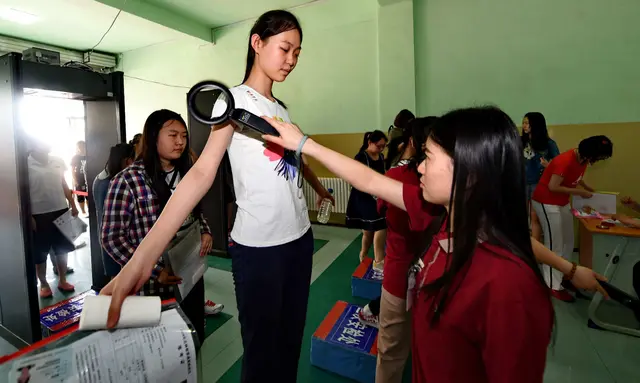The latest clashes between two former allies in Yemen, the Houthis and former President Ali Abdullah Saleh, are set to aggravate the humanitarian crisis in the war-torn country.
The two sides allied and seized power in late 2014, triggering a civil war and a military intervention by a coalition led by Saudi Arabia.
"I expect the situation will be complicated and Saleh may not risk further if he does not receive sufficient support from regional players," Yaseen Al-Tamimi, a political writer and analyst, said.
"The future of Sanaa is still uncertain. Both sides are using the hit-and-run tactics," he said, noting that it is difficult to drive Houthi forces out of Sanaa, if not impossible.
The breakdown of the Houthi-Saleh alliance, seen as an alliance of convenience, was expected from the first day the it was announced. The Houthis can't forget the revenge for murdering their first leader in the first Saada war by the army of Saleh.
There are several other reasons that led to the latest breakdown of their alliance.
First, the Houthi actions to exclude Saleh are out of concern that Saleh would turn against them at any moment.
Second, Saleh seeks to reach a deal with the Saudi-led coalition, which also hopes to do so amid growing criticism of Saudi Arabia and other members over the war and its catastrophic consequences in the Yemen, which faces one of the worst humanitarian crises.
Third, reliable sources told Xinhua that the Houthis recently knew that Tariq, Saleh's nephew who worked as chief of the president guard and special forces before the 2011 protests, has been training forces to fight the Houthis.
The Houthis, which warned Tariq several times over what he is doing, decided to turn against Saleh as they fear that he has received assurances and support from some of the Saudi-led coalition's members.
In the meantime, the armed conflict between Saleh supporters and Houthi forces will exacerbate the humanitarian situation in Yemen.
Ghamdan Al-Yousfi, a political analyst, told Xinhua that the war between Saleh and Houthis "will lead to closure of cities and cutting food supplies to the largest proportion of the population in the country".
"It will be a total guerilla war that will see no end and add to deepening chaos here," he said.
Around 23 million out of 27 million Yemeni population now live in the Houthi-run regions. The war-torn nation, which is also plagued by a severe cholera epidemic, is now coping with the world's largest humanitarian catastrophe as more than two thirds of the population need humanitarian assistance, the UN says.
Radhwan Fari, a Yemeni journalist, said the Houthi-Saleh war adds to the obstacles facing the peace process in Yemen.
"Many are optimistic this war will help end the conflict here. In my opinion, the opposite is true," he said.
"This war, or rather Saleh's move, came too late, I mean, after Houthis have become so strong, having seized most of the country's weapons and resources. In this current status, I think they even don't need foreign support," he added.
While all signs show that the Saudi-led coalition may now think of supporting Saleh against the Iran-backed Houthis, observers argued that Iran will also not fail the Houthis.
Faris Al-Beel, a political analyst and college professor, said Iran will do whatever it can to help Houthis militarily, politically and economically.
"Iran will not accept (the fate) to let Sanaa fall. If it fails to keep Sanaa under Houthi control, it will destabilize the city through systematic violence," Al-Beel said.
(ASIA PACIFIC DAILY)
 简体中文
简体中文



